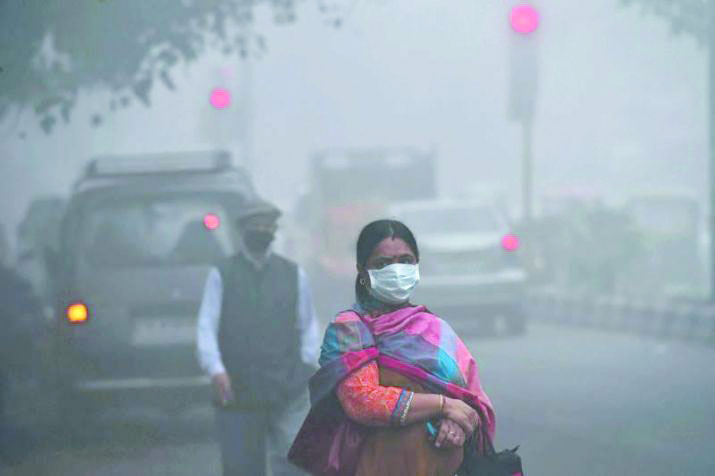The Lancet study’s finding that every eighth Indian dies due to air pollution better snap us out of our denial mode
Considering that most Delhiites heave a sigh of relief when the air quality index dips from the “severe” to “very poor”, it can be safely concluded that pollution has almost made them comatose about wanting to better their lives. Further confirming our moribund state, a recent research by Lancet has said that every eighth death in India is a result of air pollution, that about 80 per cent Indians are exposed to floating toxic matter and that Indians account for 26 per cent premature deaths and bear the heaviest disease burden of the world population. Still neither the Government, nor policy makers are able to enforce corrective measures despite trying desperately to get the momentum going. Clearly, we have reached a stage when we need to re-imagine our lives and mindsets completely in terms of environmental compliance though the revision of conveniences, as we know it, is not something that makes for either political or economic capital at the moment. There is no fear of penalty or fines, too, simply because carbon credits allow the polluting perpetrator to get away by providing for compensation while doing massive damage to the environment. The money might help in arresting the negative impact somewhat but cannot undo it completely. Besides, we have reached a dangerous tipping point where banning violative practices, no matter how draconian, is the only solution.
Of course, there’s the other question of whether the compensation, assuming it is even paid, is actually used for restorative purposes. A classic case in Delhi is the National Green Tribunal’s imposition of a Rs 25 crore fine on the Delhi Government for not implementing the plastic-burning ban, and another Rs 25 crore as security deposit until it is enforced. Not only that, the administration is required to pay an additional fine of Rs 10 crore per month if the ban isn’t imposed. But it has also armed the Government with an exit clause, allowing it the liberty to extract the money either from the perpetrators or officials who failed to perform their duty. This means the Delhi chief secretary will have to identify parties responsible for execution of orders and supervise the action taken, in this case a multiplicity of agencies like the environment department, civic bodies and DSIIDC. Recovery is a tall order in this long-winded system of redressal and the black fumes would have spewed more poison into the atmosphere by then. Despite being the most polluted city in the world, fires continue to rage in and around Delhi. Plastic burning, like that of stubble, continues unabated in NCR, sending up black plumes of smoke along roadsides. Waste segregation is still confined to residential rather than industrial areas. Illegal units in skirting villages continue to burn plastic, leather and motor engine oil despite the ban.
Although stubble burning, the main culprit of the pollutant overload, is on the wane now and some industries have been reined in, construction activities calibrated and commercial diesel vehicles regulated, there has not been a significant dip in air quality indices. This means that we urgently need to address the elephant in the room called vehicular pollution. According to EPCA, vehicles contribute 40 per cent of the total emission load in Delhi and around 30 per cent of emissions in the NCR. What’s even more worrisome is that unregulated private vehicles have led to a sharp spike in nitrous oxides and particulate matter, which directly impact our respiratory health. Given Delhi’s woeful lack of viable public transport infrastructure, any restriction overburdens the daily commuter, both in terms of cost and productivity. We need alternate transit and encircling routes like some world cities have done, and besides targetting diesel, must rein in two-wheelers. Further, the rollout of electric and hybrid cars has to be incentivised and backed up with allied infrastructure if it is to appeal to buyers. Conscientious green living is the only rescue pod if we are to add years to our lifespan. Those dying of pollution had not even made it to 70!


























